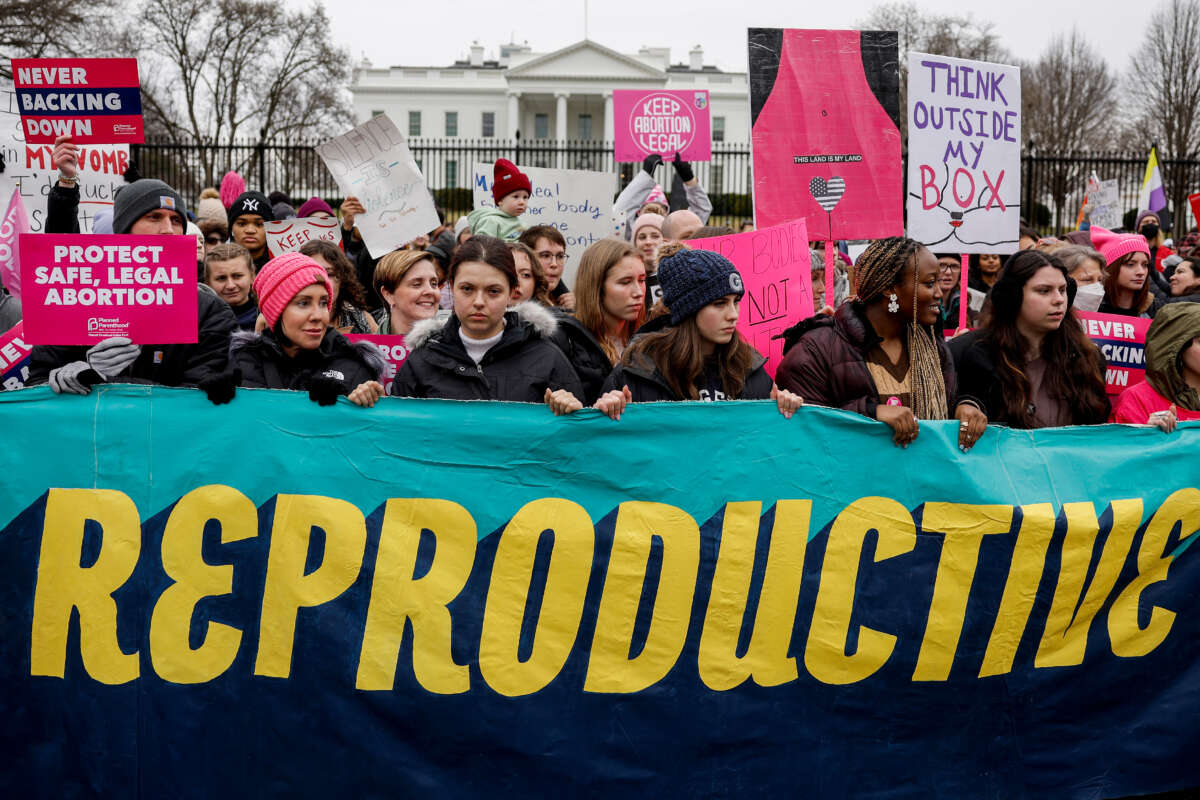A new rule proposed on Wednesday by the administration of President Joe Biden aims to prevent law enforcement from obtaining information about abortion services a person obtains if the reproductive health care they received was done legally in a different jurisdiction.
The proposal, which is being made within the U.S. Department of Health and Human Services (HHS), strengthens existing protections that fall under the Health Insurance Portability and Accountability Act (HIPAA), which all states are bound to follow.
The rule would prohibit the disclosure of information about a person who received a legal abortion — including their identity and the details of the medical procedure they have received — in the event that investigators ask about them. The rule is seen as a necessary one as states across the U.S. with anti-abortion lawmakers in charge enforce new limits on their residents’ reproductive rights, including travel restrictions if their trips pertain to obtaining an abortion in a place where the procedure is legal.
Earlier this month, Idaho passed a law banning interstate travel for abortion if an adult helps a minor to go across state lines to get the procedure – the first law of its kind on the books in any U.S. state. Some are concerned that the next logical step that anti-abortion lawmakers will take will be to ban interstate travel for adults, too.
Under the new proposal from the White House, however, state or local investigators from a jurisdiction where abortion is banned or severely restricted would be stymied in their investigatory efforts, blocked from being able to question physicians in a different jurisdiction about a person who came to them from out of state to get abortion services, so long as the procedure was done legally.
The new rule won’t go into effect until a 60-day public comment period takes place. Biden White House officials are describing the rule as incredibly important to implement in a post-Roe country.
“Protecting individual health information has taken on a critical importance following the Supreme Court’s decision in Dobbs v. Jackson Women’s Health Organization,” one official said, referring to the Court decision last summer that undid nearly 50 years of abortion rights precedent that was recognized in the 1973 Roe v. Wade decision. People “are scared” and “concerned about their medical information being misused and disclosed,” that official added.
Americans overall are supportive of policies that expand abortion rights, even as states across the country led by GOP-run legislatures and governors aim to curtail or ban the procedure.
Since the Supreme Court ruled in Dobbs that states could make their own laws about abortion, 23 states have attempted to implement a complete or pre-viability ban on abortion, according to the Kaiser Family Foundation. Twelve states have near-total bans on abortion, with two other states having no access available to the procedure for residents due to ongoing legal battles.
In spite of these states’ efforts to deny their residents their reproductive rights, polls show that a majority of Americans back a return to the standard that existed before Dobbs.An NPR/Ipsos poll in January, for example, found that around 60 percent of Americans think Roe was properly decided and should be the standard for abortion rights in the country, while just around 41 percent backed the Dobbs decision.
Join us in defending the truth before it’s too late
The future of independent journalism is uncertain, and the consequences of losing it are too grave to ignore. To ensure Truthout remains safe, strong, and free, we need to raise $46,000 in the next 7 days. Every dollar raised goes directly toward the costs of producing news you can trust.
Please give what you can — because by supporting us with a tax-deductible donation, you’re not just preserving a source of news, you’re helping to safeguard what’s left of our democracy.
